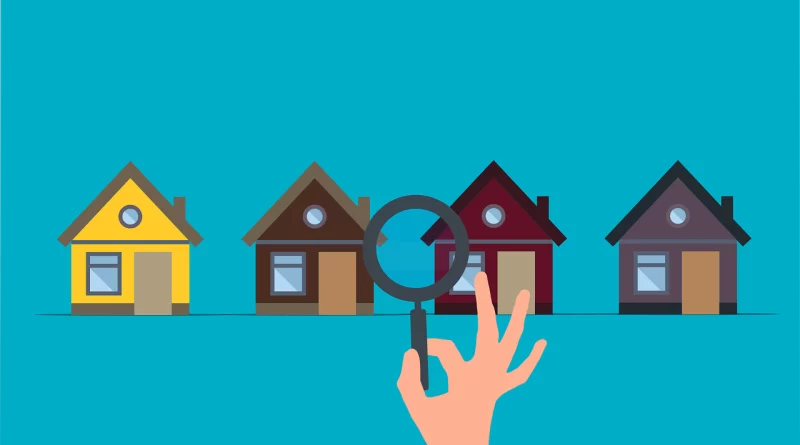Things I Learned Dealing with Rent and Mortgage Payments
Disclaimer
Here on Selfmadesns.com I’m only giving you my life experiences. So, you may learn and benefit from my mistakes along the way. As well as learn from all of the good decisions I made. What may work for me in some different experiences is not always what you should be doing on your own. Always do your own research or speak with a professional on the subject. Better yet do both guys. It will be way more beneficial for you at the end of the day. If you want more information on our terms, please visit our terms and conditions page along with the privacy policy page as well.
Rent Issues

When I first decided to rent out my old condo instead of selling it to help pay for the new property I was set on buying. It all seemed like a great idea. I say that because I would be able to take the rent from the condo and put it towards the new mortgage loan I would have. Now this is a very great idea if you have responsible tenets living in your property. Let me not say that because hard times do fall on people unexpectedly. But when those times hit there are two ways you can go about it.
The Hard Way
Now the hard way that I was thinking about taking was just charging a late fee for each day they were late. But when I was really thinking about it, I would just be adding to their hard time. But it would show that I put my business first before anything. The goal is always to make money for ourselves and our families. So, if I give them a pass it would be kind of like putting the tenants before our family needs. Also, the people who gave you the mortgage loan will be waiting on their payment at the due date. Leaving you with late payment history on your credit. Now who wants that.
On The Other Hand
Now on the other hand you can just wait for your tenants to be able to afford the rent. Because their payday just might be late when the rent is due. Or they might have had a real emergency come up and needed to handle it. Car problems and family are always something we should have some money set aside for. But not everyone does. So maybe you can give them a little time to get the rent together. It can even benefit you in the long run. Now your tenants will appreciate you more for this kind act you have giving them. Now maybe they will decide to sign their lease for a few more years.
What I Learned
What I learned from this experience is that you really need to screen you tenants and do very deep background checks. You need to do everything possible to get a good idea of who will be staying in your property. Granted that everyone is different and has a past. Their past might not be who they are today. So, you really need to be a good judge of character when you are screening people for your property. As well as take their background into account my friends. What else I also learned was to set aside a few months of rent just in case a tenant is late with rent. This way I won’t be late on my mortgage payment. Leaving me with good payment history.
Bonus – Expenses That Come with Owning
Out there there’s a discussion about which is better owning or renting a home. I’m not here to pick a side today. What I will do for today is, going over just some of the expenses for owning a home. There can be an agreement for both parties. This goes without saying that it is pros for both. Thats why we will only deal with facts today. Let’s jump right into the facts!
Mortgage payments
This one should of be at the top of mostly everyone list. Similar to rent but this comes with ownership. That’s the best part of having a mortgage if you ask me.
H.O.A fees
This usually covers yard work, security, etc. and this usually comes with gated communities and condos. This cool if you not into handling some of the like yard work.
Property Tax
You should know the city will want their share. This should be going to things like road work, schools, stadiums, etc. You can always look up what all this covers.
Home insurance
This can very what’s covered. So, this will depend on what’s important to you. You don’t want someone doing housework on your home and they get hurt and now you have to cover it.
Natural Gas
This going to depend on how big your house is. The bigger the house, the bigger the bill. Have to stay warm in the winter unless you in a state that’s warm all year around. And if you are you still might need it some nights.
Electricity
You gone need this. Without it no tv, no charge for your phone, no video games, etc. so it’s best to keep that in mind when its time to own for sure.
Water
You have to shower if you want to be around people who care about self-grooming. Oh yes, you also need it to live. You can really run into some problems if you go without water too long.
Improvements & Repairs
So, this covers anything you might want to change. New bathroom, adding a bedroom in the basement, face lift for the kitchen. let’s not forget the repairs new roof, air conditioning repair, water damage, etc
There you have it my friends just some of the expenses that comes with owning a home. And we didn’t get to the food and just the living life part. Like, kids, girlfriend/boyfriend, everything that comes with owning a car etc. so take this information and do what you like my friends. Just remember this is one side of things. We’ll getting into the other fact another time!
Summary
To summarize this whole thing up for you guys. When it comes to collecting rent it’s not always as smooth as you may think it is. People fall on hard times and them time can start to set on you. So, you can have a kind heart but please don’t be a fool. It’s ok to help people out as along as it doesn’t harm you too much. Thanks to anyone who made it this far to see the bonus part of the post as well. That’s it for this post. Thanks for the visit. Please come back for more guys. Good luck out there! Hi guys let me know if anything was helpful, if you learned anything, or if it was enjoyable.
